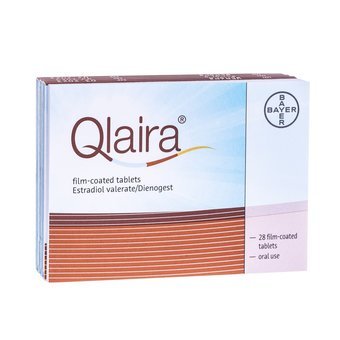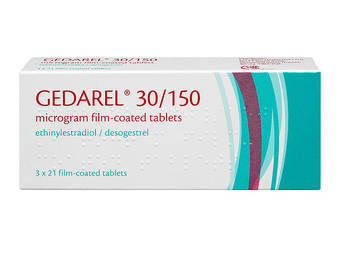Contraceptives

More information
Introduction
What Are Contraceptive Pills?
The contraceptive pill is a form of birth control used by women at risk of unwanted pregnancies. The combined pill can also be used by those who need contraception but suffer symptoms of polycystic ovary syndrome (PCOS), premenstrual syndrome (PMS), and acne. It is also referred to as “the pill”.
Birth control pills are also known as oral contraceptives since they are taken by mouth to prevent unwanted pregnancy. In general, these are effective methods of contraception. However, they can also cause unwanted side effects in some people, so finding one that works best for you can be a process of trial and error.
Treatments
More information
Once an online consultation has been been approved by our medical team, our pharmacy will safely prepare and ship your treatment to you in discreet packaging using Royal Mail or DPD.
What Are Contraceptive Pills?
The contraceptive pill is a form of birth control used by women at risk of unwanted pregnancies. The combined pill can also be used by those who need contraception but suffer symptoms of polycystic ovary syndrome (PCOS), premenstrual syndrome (PMS), and acne. It is also referred to as “the pill”.
Birth control pills are also known as oral contraceptives since they are taken by mouth to prevent unwanted pregnancy. In general, these are effective methods of contraception. However, they can also cause unwanted side effects in some people, so finding one that works best for you can be a process of trial and error.
How Does the Contraceptive Pill Work?
Contraceptive pills use synthetic (man-made) hormones involved in pregnancy to disrupt the release of eggs from the ovaries (ovulation). This prevents sperm from reaching eggs and fertilising them, ultimately preventing pregnancies.
Additionally, the pill can cause the mucus in the womb to thicken, which can impede the passage of sperm. This further reduces the chances of sperm reaching the egg and fertilising it. Finally, they can also thin the womb’s lining, which makes it less likely that a fertilised egg will implant into the womb and grow.
What Is the Most Common Contraceptive Pill?
The most commonly prescribed combined or mini-pills in the UK are dependent on your location. However, the most common ones are:
- Rigevidon
- Ovranette
- Microgynon
- Yasmin
- Cilest
- Loestrin
- Mercilon
As described above, there are 2 different types of oral contraceptive pills available, the first one being the combined pill. It contains oestrogen and progestogen which work in 3 different ways to prevent unwanted pregnancies. They thicken the fluid in your cervix (making it more difficult for sperm to enter the womb), preventing the release of an egg from the ovaries, and they prevent the womb lining from thickening enough to facilitate the growth of an egg.
This multi-approach makes the combined pill a highly effective and popular form of contraception. The second type of pill is referred to as the “mini-pill”. As described above, it only contains progestogen, working in a different way to the aforementioned pull as it only prevents the sperm cell from entering the womb. Although effective, women often prefer the combined pill.
What Are the Benefits of the Contraceptive Pill?
Taking the contraceptive pill comes with a variety of benefits such as controlling periods and of course an uninterrupted sex life.
Many women choose the combined pill over the mini-pill due to its ability to lighten periods, regulate the menstrual cycle and reduce the risk of ovarian, womb, and colon cancer. The combined pill, however, does cause some side effects such as mood swings, weight gain, and skin problems.
The combined pill is taken for 21 days and then repeated after a 7-day break. A lot of women prefer the mini-pill as it is taken every day which aids compliance. Because it does not contain oestrogen, there are no increased risks of blood clots either (also suitable for women who are breastfeeding). It is important to note that it is less effective compared to the alternative type of pill and can cause irregular bleeding because there is no scheduled menstruation involved.
How Long Does it Take For the Contraceptive Pill to Work?
It can take as long as seven days for the pill to begin to take effect. If you are sexually active during this time, you should use another form of contraception as the effects of the medication won’t be present yet.
Some of the other effects of hormonal birth control pills can sometimes be employed to counteract conditions like acne or abnormal bleeding. For these issues, the medication can take up to three or four months to show improvements.
How to Take Contraceptive Pills
As the name “oral contraceptive pill” suggests, these forms of contraception are taken by mouth. The typical way to take the medication is to swallow one per day over 21 days. Following this, you take a break for seven days. During this period, you will bleed in a similar manner to a period. Once the hiatus is over, you begin taking the pill daily once again. You need to take the medication at roughly the same time each day.
If your timing is irregular, you can increase your risk of becoming pregnant. However, this isn’t the case for everyone. More tailored regimens exist whereby you may take shorter (or no) breaks. This method can help to reduce the incidence of side effects if you are experiencing severe issues because of the pill. Furthermore, you should always consult with a healthcare professional before taking the pill.
Types of Contraceptive Pills
Various kinds of pills exist, and these are produced by a plethora of pharmaceutical manufacturers, all containing numerous amounts of synthetic versions of female sex hormones (oestrogen/progestogen). However, if you use the safe and discreet service provided by Cloud Pharmacy you can have the contraceptive pill of your choice delivered straight to your door.
The most common contraceptive pill prescribed by doctors is the combined pill, which uses a combination of hormones to decrease the likelihood of pregnancy. However, some people opt for pills that use just one pregnancy-related hormone to reduce the side effects associated with the medication.
Combined Oral Contraceptive Pill
The combined pill contains man-made versions of the female hormones estrogen and progesterone. These hormones are involved in the regulation of ovulation and the lining of the womb’s wall. Taking a combined dose of these hormones daily can disrupt the ovulation process and prevent eggs from being released and fertilisation. The Yasmin pill is an example of combined oral contraception.
There are three kinds of combined pills that a doctor may prescribe you. Monophasic 21-day pills like Rigevidon are the most common, where each dose has the same amount of hormone. You take these each day for 21 days and then have a break for seven days.
Phasic medication contains two or three sections of pills that contain different hormonal doses. These are taken in a similar way to monophasic pills, but they must be taken sequentially. The final kind of combined pill is everyday (ED) pills. There are 21 active pills in a pack and seven inactive ones. There are no breaks when taking this kind of medication, and they also need to be taken in the correct order. Instructions are included in the box.
Progesterone Contraceptive
Also known as the mini pill, this form of oral contraception functions by thickening the mucus in the cervix. Progesterone contraceptive pills like Cerazette can prevent sperm from reaching the egg and fertilising it. Some forms of the progesterone contraceptive can also impede ovulation in those that take it. This form of oral contraception also needs to be taken daily.
This pill can be equally as effective as the combined pill if taken correctly. However, with ‘typical use’ the effectiveness is usually around 91% effective. Generally, this pill is prescribed to women who can’t take estrogen but it may also be prescribed if you have significant side effects with the combined pill.
Estrogen Contraceptive Pill
There is no estrogen-only contraceptive pill at present. Some people may be sensitive to estrogen when taking contraceptives, so there are forms of the pill with lower doses of the hormone. Estrogen has been linked to some of the common side effects associated with the medication. If you are worried about the hormone’s impact on your body, consider talking to your doctor about low-dose options.
Missed Contraceptive Pill
If you have missed one pill in the pack or started a new box a day late, you should still be protected against pregnancy. If this happens, you should take the last pill that you missed, even if that means taking two pills on the same day. Then it would help if you carried on with your schedule as normal, taking the seven-day break or inactive pills as you usually would.
Forgetting to take your contraception for 2 or more days could impact your protection against pregnancy. You should take the last pill that you missed, even if this means several pills at once. Leave any earlier missed pills and continue through the pack as usual. You should use additional contraception for the next seven days.
Changing Contraceptive Pill
Since side effects are not uncommon when taking contraceptive pills, you might experience temporary problems when you first start taking them. If you do not experience a drop-off in these after a few months of taking the medication or are unmanageable, you might need to change the pill. Talk to your GP about your options should this be the case.
Advantages and Disadvantages of Contraceptive Pills
There are several advantages associated with the contraceptive pill. These include:
- A high efficacy (up to 99% if taken correctly)
- Less painful and more regular periods
- Lower chances of certain kinds of cancer
- Doesn’t disrupt sexual intercourse in the same way a condom might
However, there are also some downsides to the medication. As mentioned above, it can cause side effects in some women, including:
- Headaches
- Mood swings
- Nausea
- Increased blood pressure
- Doesn’t protect against sexually transmitted infections
Contraceptive Pills Side Effects
Unfortunately, like a lot of prescribed medication, side effects are common. As mentioned above, the contraceptive pill can cause a number of side effects. However, they do vary from person to person so it’s important to weigh up the pros and cons before taking the pill; and always speak to your doctor beforehand.
Here are some of the most significant issues some people face:
- Blood clots
- Weight gain
- Bleeding
- Migraines
- Acne
Blood Clots Contraceptive Pill
The estrogen in the combined contraceptive pill has been linked to a higher incidence of blood clots among women. While this is an infrequent side effect of the medication, you should consult with your doctor if you or your family have a history of blood clots. They may suggest a progesterone-only pill or one with a lower dose of estrogen.
Contraceptive Pill and Weight Gain
Weight gain is one of the most commonly reported side effects among those who start taking the pill. However, there is little scientific evidence to back this up. Instead, the contraceptive pill can alter your body shape, fat storage, and water retention levels. This may contribute to the feeling of weight gain among women taking the medication.
Bleeding on Contraceptive Pill
Taking hormonal treatments such as progesterone and estrogen can often disrupt regular period cycles. Some people may experience bleeding between periods, also known as breakthrough bleeding or spotting. This is a common side effect, but it will often clear up after three to four months of taking the medication. If the symptoms do not subside, then contact your GP to discuss your options.
Contraceptive Pill Migraine
If you have a history of experiencing migraines, especially migraines with auras, then the combined pill may not be right for you. If your medical history shows this, you could increase your chances of stroke by taking estrogen. Those who experience migraines may be especially sensitive to hormonal swings caused by the pill (and particularly estrogen), so this is something you should discuss with your doctor before starting oral birth control.
Contraceptive Pill and Acne
The hormones that are present in birth control pills may actually be beneficial if you suffer from acne. The pills can reduce the circulation of androgens in your bloodstream, decreasing sebum production. However, only the combined pill will have this effect.
For more information about side effects associated with common contraceptive pills, please read our blog article on Utovlan: Everything You Need to Know.
Contraceptive Pill Effectiveness
If you have considered your options and believe that the contraceptive pill might be the right choice for you, you may be wondering how effective it is. If appropriately taken (every day and in the correct order), contraceptive pills are around 99% effective. This means that each year, one in 100 women will get pregnant while taking the medication.
FAQ
Are All Daily Oral Contraceptives The Same?
No, not all oral contaceptives are the same. There are many different types of oral contraception and each one differs slightly. Your oral contraception should be taken as directed by your prescriber. If you miss doses and do not take your pill as it has been prescribed it will not be as effective and may not work.
What Types of 'The Pill' Are Available?
There are two main types of oral contraception: The combined pill (CoC), which containes two hormones, progestin and oestrogen and the progesterone only pill (PoP), often referred to as the mini pill, contains only one hormone, progesterone. Both types of oral contraception the CoC and PoP are 99% effective if taken as prescribed meaning your chances of becoming pregnant if you have unprotected sex are very low. Although you are unlikley to become pregnant, you are still likely to contract a sexually transmitted infection if you are regularly having unprotected sex with different partners.
What is "The Pill"?
Contraceptive pills are often referred to as "The Pill". Contraceptive pills consist of synthetic hormones (hormones that mimic the ones made in your body). They are composed of a synthetic type of oestrogen and progesterone. The Combined Oral Contraceptive (CoC) containes both of these hormones and the Progeterone Only Pill (PoP) (The Mini-Pill) only contains one of these hormones (progestin).
If I Vomit or Have Diarrhoea After Taking The Pill, What Do I Do?
If you have severe diarrhoea or vomit 3-4 hours after taking your pill, the chances of you being protected from getting pregnant are less likely. If this does happen to you, you should take another pill within 12 hours of your episode. If you are taking the inactive pill when this happens then you do not have to take another pill to compensate.
How Reliable is Oral Contraception?
If your dose is taken as prescribed and then the pill is one of the most reliable forms of contraception when it comes to protecting you against pregnancy. The pill is 99% effective at preventing pregnancies if taken appropriately, however it does not protect against STI's meaning if you are having sex with different partners, barrier contraception should still be used.
How Hard is it to Remember to Take Oral Contraception?
If you manage to adopt a regular routine of taking your pill as soon as you get up, you are less likely to forget. If you do find that you are more likely to forget then it is best to set reminders on your phone. Alternatively there are many apps avaialbe for android and iOS such as myPill that can help you to remember to take your pill.
Do I Have to Take My Pill at The Same Time Everyday?
Routine is imperative when you start taking oral contraception. The time of day you take the pill does not matter, however if you should pick to take it in the morning, afternoon or night time- whatever time you decide to choose you must be consistent with it and continue to take it during this period of time every day.
Can I Still Have Sex During The 4 or 7-Day Break?
It is safe to have sex during the the break if you have been taking your pill properly as prescribed. If you are having regular unprotected sex during this time you should be vigilant to start your next pack or strip on time and to make sure you are taking your pill properly.
I Have Not Had My Period And I Have Been Taking My Pill as Prescribed, am I Pregnant?
It is important to understand that if you have been taking your pill on time everyday as directed by your prescriber then the chances of you being pregnant are extremely low. If you are not getting your period whilst taking the pill then there is a chance that the lining of the womb has not formed enough for it to be released, if you continue to not see any bleeding or have a period for 2 months or more than you should contact your prescriber for investigation.
Guides
How it works

First...
Complete a quick eligibility check

Then...
Order your treatment

Finally.
Fast, confidential delivery to your door





























